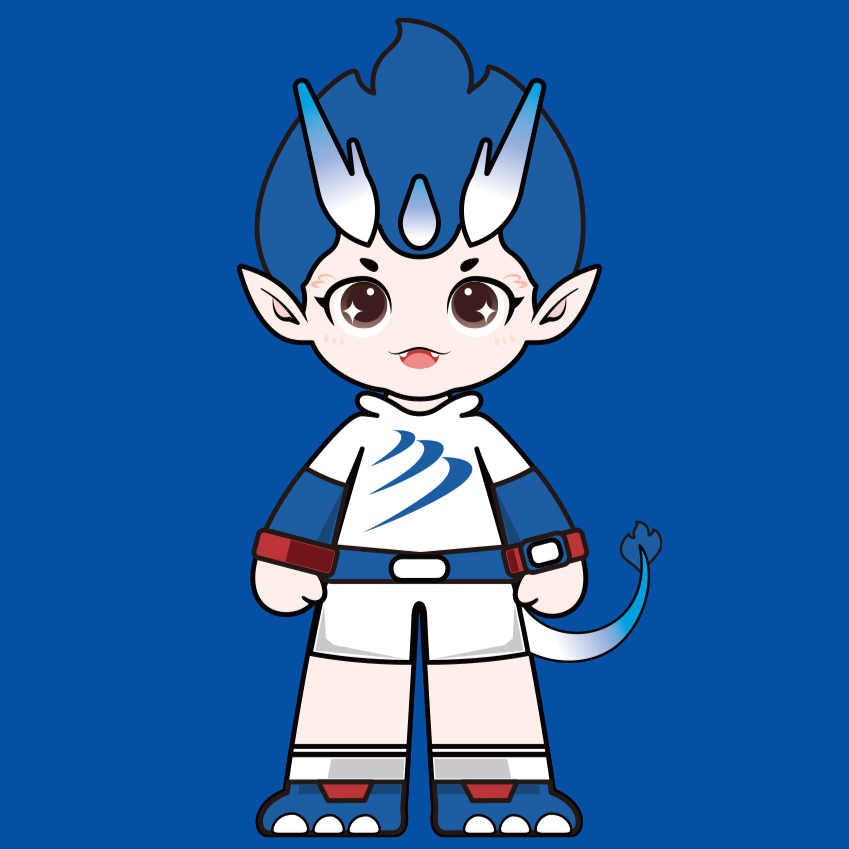
иӢұиҜӯйҮҢжңүеҮ з§Қж—¶жҖҒпјҢеҗ„жҳҜд»Җд№Ҳ
2017-11-28
иӢұиҜӯдёӯзҡ„ж—¶жҖҒпјҲtenseпјүдёҖе…ұеӣӣз§ҚпјҢеҲҶеҲ«жҳҜпјҡ
зҺ°еңЁж—¶пјҲpresent tenseпјүпјӣ
иҝҮеҺ»ж—¶пјҲpast tenseпјүпјӣ
е°ҶжқҘж—¶пјҲfuture tenseпјүпјӣ
иҝҮеҺ»е°ҶжқҘж—¶пјҲfuture-in-the past tenseпјүгҖӮ
дҪҶжҳҜеӣҪеҶ…дёӯе°ҸеӯҰиӢұиҜӯиҜҫзЁӢдёӯжүҖиҜҙзҡ„вҖңж—¶жҖҒвҖқдёҖиҲ¬жҳҜж—¶жҖҒе’ҢдҪ“иІҢпјҲaspectпјүзҡ„з»“еҗҲгҖӮиӢұиҜӯдёӯзҡ„дҪ“иІҢдёҖе…ұжңүеӣӣз§ҚпјҢеҲҶеҲ«жҳҜпјҡ
дёҖиҲ¬ејҸпјҲsimple aspectпјүпјӣ
иҝӣиЎҢејҸпјҲprogressive aspectжҲ–continuous aspectпјүпјӣ
е®ҢжҲҗејҸпјҲperfect aspectпјүпјӣ
е®ҢжҲҗиҝӣиЎҢејҸпјҲperfect progressive aspectпјүгҖӮ
еӣ жӯӨеӣҪеҶ…иӢұиҜӯж•ҷеӯҰдёӯжүҖиҜҙзҡ„вҖңж—¶жҖҒвҖқжңү16з§ҚпјҢеҚі4з§Қж—¶жҖҒе’Ң4з§ҚдҪ“иІҢдёӨдёӨз»“еҗҲгҖӮеҲҶеҲ«еҰӮдёӢпјҡ
дёҖиҲ¬иҝҮеҺ»ж—¶пјҲsimple pastпјүпјӣ
иҝҮеҺ»иҝӣиЎҢж—¶пјҲpast progressiveпјүпјӣ
иҝҮеҺ»е®ҢжҲҗж—¶пјҲpast perfectпјүпјӣ
иҝҮеҺ»е®ҢжҲҗиҝӣиЎҢж—¶пјҲpast perfect progressiveпјүпјӣ
дёҖиҲ¬зҺ°еңЁж—¶пјҲsimple presentпјүпјӣ
зҺ°еңЁиҝӣиЎҢж—¶пјҲpresent progressiveпјүпјӣ
зҺ°еңЁе®ҢжҲҗж—¶пјҲpresent perfectпјүпјӣ
зҺ°еңЁе®ҢжҲҗиҝӣиЎҢж—¶пјҲpresent perfect progressiveпјүпјӣ
дёҖиҲ¬е°ҶжқҘж—¶пјҲsimple futureпјүпјӣ
е°ҶжқҘиҝӣиЎҢж—¶пјҲfuture progressiveпјүпјӣ
е°ҶжқҘе®ҢжҲҗж—¶пјҲfuture perfectпјүпјӣ
е°ҶжқҘе®ҢжҲҗиҝӣиЎҢж—¶пјҲfuture perfect progressiveпјүпјӣ
дёҖиҲ¬иҝҮеҺ»е°ҶжқҘж—¶пјҲsimple future-in-the-pastпјүпјӣ
иҝҮеҺ»е°ҶжқҘиҝӣиЎҢж—¶пјҲfuture-in-the-past progressiveпјүпјӣ
иҝҮеҺ»е°ҶжқҘе®ҢжҲҗж—¶пјҲfuture-in-the-past perfectпјүпјӣ
иҝҮеҺ»е°ҶжқҘе®ҢжҲҗиҝӣиЎҢж—¶пјҲfuture-in-the-past perfect progressiveпјүгҖӮ
2023-11-26 В· зҷҫеәҰи®ӨиҜҒ:дә‘еҚ—ж–°еҚҺз”өи„‘иҒҢдёҡеҹ№и®ӯеӯҰж Ўе®ҳж–№иҙҰеҸ·
 дә‘еҚ—ж–°еҚҺз”өи„‘еӯҰж Ў
дә‘еҚ—ж–°еҚҺз”өи„‘еӯҰж Ў

еҸӮз…§дёҠиЎЁпјҢз”ұ第1еҲ—иҮіз¬¬4еҲ—пјҲз«–зқҖзңӢпјүеҜ№еә”зҡ„16з§Қж—¶жҖҒеҲҶеҲ«жҳҜпјҡ
1. дёҖиҲ¬зҺ°еңЁж—¶пјҢдҫӢеҸҘпјҡ We have six classes every day. жҲ‘们жҜҸеӨ©дёҠе…ӯиҠӮиҜҫгҖӮ
2. зҺ°еңЁиҝӣиЎҢж—¶пјҢдҫӢеҸҘпјҡI am playing computer games now.жҲ‘жӯЈеңЁжү“з”өи„‘жёёжҲҸгҖӮ
3. зҺ°еңЁе®ҢжҲҗж—¶пјҢдҫӢеҸҘпјҡShe has been to New York twice. еҘ№е·Із»ҸеҺ»иҝҮзәҪзәҰдёӨж¬ЎгҖӮ
4. зҺ°еңЁе®ҢжҲҗиҝӣиЎҢж—¶пјҢдҫӢеҸҘпјҡHe has been teaching math for 10 years.д»–е·Із»Ҹж•ҷж•°еӯҰ10е№ҙдәҶгҖӮ
5. дёҖиҲ¬иҝҮеҺ»ж—¶пјҢдҫӢеҸҘпјҡI bought 2 comic books yesterday.жҳЁеӨ©жҲ‘д№°дәҶ2жң¬жј«з”»д№ҰгҖӮ
6. иҝҮеҺ»иҝӣиЎҢж—¶пјҢдҫӢеҸҘпјҡWe were playing basketball at 6 p.m. yesterday. жҳЁеӨ©дёӢеҚҲ6зӮ№жҲ‘们жӯЈеңЁжү“зҜ®зҗғгҖӮ
7. иҝҮеҺ»е®ҢжҲҗж—¶пјҢдҫӢеҸҘпјҡThe train had already left by the time I got to the station.еңЁжҲ‘еҲ°иҫҫиҪҰз«ҷеүҚпјҢзҒ«иҪҰе°ұе·Із»ҸзҰ»ејҖдәҶгҖӮ
8. иҝҮеҺ»е®ҢжҲҗиҝӣиЎҢж—¶пјҢдҫӢеҸҘпјҡAt last he got the offer from the university he had been expecting.д»–з»ҲдәҺ收еҲ°дәҶжңҹзӣје·Ід№…зҡ„еӨ§еӯҰеҪ•еҸ–йҖҡзҹҘд№ҰгҖӮ
9. дёҖиҲ¬е°ҶжқҘж—¶пјҢдҫӢеҸҘпјҡI will go to Kunming tomorrow.жҲ‘жҳҺеӨ©е°ҶдјҡеҺ»жҳҶжҳҺгҖӮ
10. е°ҶжқҘиҝӣиЎҢж—¶пјҢдҫӢеҸҘпјҡI will be doing my homework this time tomorrow.
жҳҺеӨ©зҡ„иҝҷдёӘж—¶еҖҷжҲ‘жӯЈеңЁеҒҡдҪңдёҡгҖӮ
11. е°ҶжқҘе®ҢжҲҗж—¶пјҢдҫӢеҸҘпјҡBy this time next year, I will have graduated from the university. еҲ°жҳҺе№ҙиҝҷдёӘж—¶еҖҷпјҢжҲ‘е·Із»Ҹд»ҺеӨ§еӯҰжҜ•дёҡдәҶгҖӮ
12. е°ҶжқҘе®ҢжҲҗиҝӣиЎҢж—¶пјҢдҫӢеҸҘпјҡBy the time the sun rises, I shall have been sleeping for nine hours.еӨӘйҳіеҚҮиө·жқҘд№ӢеүҚпјҢжҲ‘е·Із»ҸзқЎдәҶ9дёӘе°Ҹж—¶дәҶгҖӮ
13. иҝҮеҺ»е°ҶжқҘж—¶пјҢдҫӢеҸҘпјҡI knew that she would be late.жҲ‘зҹҘйҒ“еҘ№дјҡиҝҹеҲ°гҖӮ
14. иҝҮеҺ»е°ҶжқҘиҝӣиЎҢж—¶пјҢдҫӢеҸҘпјҡThey said they would be coming.他们иҜҙдәҶ他们е°ҶиҰҒжқҘгҖӮ
15. иҝҮеҺ»е°ҶжқҘе®ҢжҲҗж—¶пјҲиҫғе°‘дҪҝз”ЁпјүпјҢдҫӢеҸҘпјҡHe said he would have paid me back the money by the end of the weekend. д»–иҜҙе°ҶеңЁе‘Ёжң«еүҚиҝҳжҲ‘й’ұгҖӮ
16. иҝҮеҺ»е°ҶжқҘе®ҢжҲҗиҝӣиЎҢж—¶пјҲеҫҲе°‘дҪҝз”ЁпјүгҖҗиЎЁзӨәеҠЁдҪңд»ҺиҝҮеҺ»жҹҗдёҖж—¶й—ҙејҖе§ӢдёҖзӣҙ延з»ӯеҲ°иҝҮеҺ»е°ҶжқҘжҹҗдёҖж—¶й—ҙгҖӮгҖ‘пјҢдҫӢеҸҘпјҡHe said that by the end of the spring term he would have been studying English for three years. д»–иҜҙеҲ°дәҶжҳҘеӯЈеӯҰжңҹжң«пјҢд»–е°ұеӯҰдәҶдёүе№ҙиӢұиҜӯдәҶгҖӮ
2017-11-28 В· дёӯе°ҸеӯҰдёҖзә§ж•ҷеёҲпјҢдё“жіЁдёӯеӯҰиӢұиҜӯж•ҷиӮІ15е№ҙ

I always swim in the afternoon.It is usually sunny.
He always swims in the afternoon.He feels very relaxed.
2.зҺ°еңЁе°ҶжқҘж—¶пјҡ
I will swim tomorrow afternoon.I am not going to have any classes.
He will swim tomorrow afternoon.He is going to have a swimming test.
3.зҺ°еңЁиҝӣиЎҢж—¶пјҡ
I am swimming in the gym with my classmates now.I want to improve my swimming skill.
4.зҺ°еңЁе®ҢжҲҗж—¶пјҡ
I have already swum for nearly an hour. I enjoyed myself very much.
5.дёҖиҲ¬иҝҮеҺ»ж—¶пјҡ
I swam yesterday afternoon.I didn't do my homework.
6.иҝҮеҺ»е°ҶжқҘж—¶пјҡ
I told you just now that I would swim in the gym.You may find me there.
7.иҝҮеҺ»иҝӣиЎҢж—¶пјҡ
She asked me if I was swimming in the lake.I said "yes".
8.иҝҮеҺ»е®ҢжҲҗж—¶пјҡ
I had already swum for half an hour when he came to the swimming pool.Then he joined us.
9.зҺ°еңЁе°ҶжқҘиҝӣиЎҢж—¶пјҡ
I will be swimming with my classmates tomorrow afternoon.I can't go to see my grandparents.
10.зҺ°еңЁе®ҢжҲҗиҝӣиЎҢж—¶пјҡ
I have been swimming here for thirty minutes.
|
е№ҝе‘Ҡ жӮЁеҸҜиғҪе…іжіЁзҡ„еҶ…е®№ |






